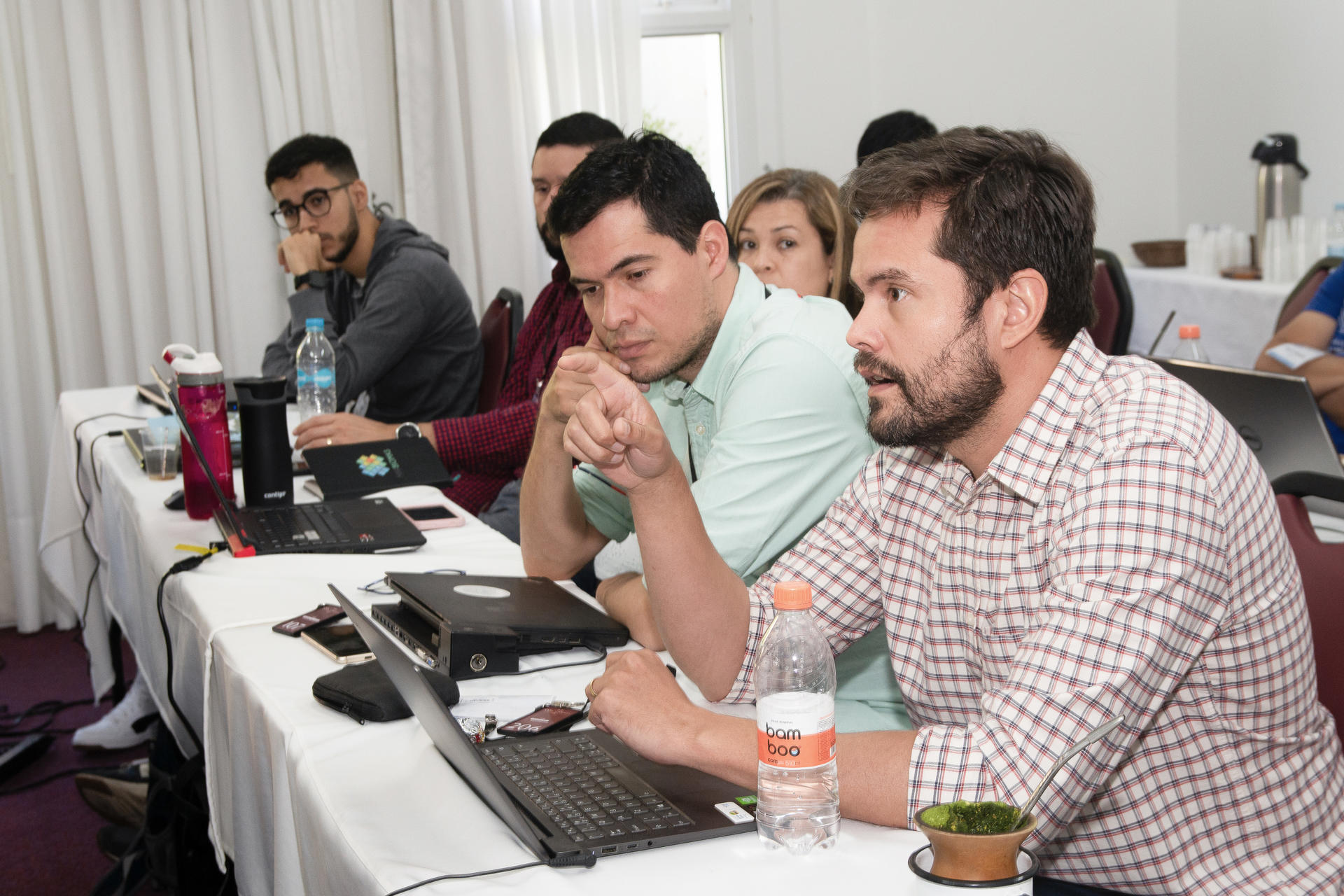Blog New partnership will monitor the impacts of climate change on fresh water in the Amazon

The Alliance of Bioversity and CIAT joined regional organizations in the MAPBIOMAS network to map and monitor surface water in Guyana, French Guyana and Suriname. Data will help inform public policies on land and water use.
The Amazon Basin is one of the world’s largest river systems, responsible for over 15% of the fresh water entering the oceans. The rivers and lakes of the Amazon are essential to agriculture, to the livelihoods of the peoples of the forest, conservation of biodiversity and climate change. However, changes in land use, overuse of water resources and other human activities have altered water quality and availability in the region.
Proper decision making on this scale requires continuously and historically assessing changes in water surface dynamics. To provide this kind of detailed and consistent data and information, a consortium of NGOs created the Mapbiomas Water platform in Brazil. Now the monitoring is being expanded to the whole of the Amazon under the Amazonian Network of Georeferenced Socio-Environmental Information (RAISG).
“The Alliance of Bioversity and CIAT has a tradition on monitoring in the Amazon, and the organization’s expertise can greatly contribute to this initiative. In this first phase the Alliance will be responsible for the map of the water surface and monitor its historical dynamics in Guyana, French Guyana and Suriname”, explained Bernardo Caldas, Leader of Monitoring, Evaluation and Learning, CAL-PSE Program part of the Multifuncional Landscape initiate at CIAT, who is also one of the authors of the methodology.
RAISG and the Alliance, in collaboration with MapBiomas and under the advice of IMAZON, will adopt, adapt and apply the methodology built for Brazil for mapping and monitoring surface waters in Guyana, French Guyana and Suriname. The project will initially focus on building the historical dataset from 1985-2022. The work will take place over a period of up to two years, respecting the deadlines established by RAISG. The partnership is being implemented through an agreement between the Alliance and the Instituto del Bien Común (IBC), RAISG’s member responsible for the regional water mapping initiative. The project is funded with the support of the Quadrature Climate Foundation.
ABOUT MAPBIOMAS
MapBiomas is a collaborative network formed by NGOs, universities, and technology startups, which aims at identifying the transformations in South America through science, to produce knowledge and information to help support conservation efforts and the fight against climate change.
About MapBiomas Water
This is an unprecedented initiative for territorial mapping of the dynamics of surface water and water bodies for the entire South America since 1985. The MapBiomas Water series processed more than 150 thousand images generated by the Landsat 5, 7 and 8 from 1985 to 2022. With the help of artificial intelligence, the area covered by water in each pixel of 30 m X 30 m of the more than 17.84 million square kilometers of the continent. In Brazil, 108 terabytes of images were processed, revealing areas, years and months of greater and lesser water coverage. The method also allows you to identify the water surface area throughout the period, as well as transitions and trends. The Brazilian data can be found in annual, monthly and accumulated maps and statistics for any period between 1985 and 2021 on the platform MapBiomas Water, open to all.
RAISG
The Amazonian Network of Georeferenced Socio-Environmental Information (RAISG) is a consortium of civil society organizations from the Amazon countries oriented to the socio-environmental sustainability of the Amazon, with the support of international cooperation. RAISG produces and disseminates knowledge, statistical data and geospatial socio-environmental information on Amazonia developed through protocols common to all the countries of the region. RAISG enables a view of Amazonia as a whole, including the threats and pressures the region faces. RAISG produces the most comprehensive socio-environmental intelligence reports on Amazonia so that the region can be better understood, appreciated and looked after.
IBC
The Instituto del Bien Común (IBC) is a Peruvian non-profit civil association founded in 1998 that works with rural communities in the Peruvian Amazon, as well as with regional and national government institutions to provide greater care for the commons: the resources and spaces held in common such as rivers, lakes, forests, fisheries, natural protected areas, and community territories. Because these resources and spaces are central to the livelihood of Amazonian peoples, both indigenous and non-indigenous, especially in this age of a changing global climate, our work towards their conservation and sustainable use contributes to the well-being of these peoples as well as that of all Peruvians.
https://ibcperu.org/en/
